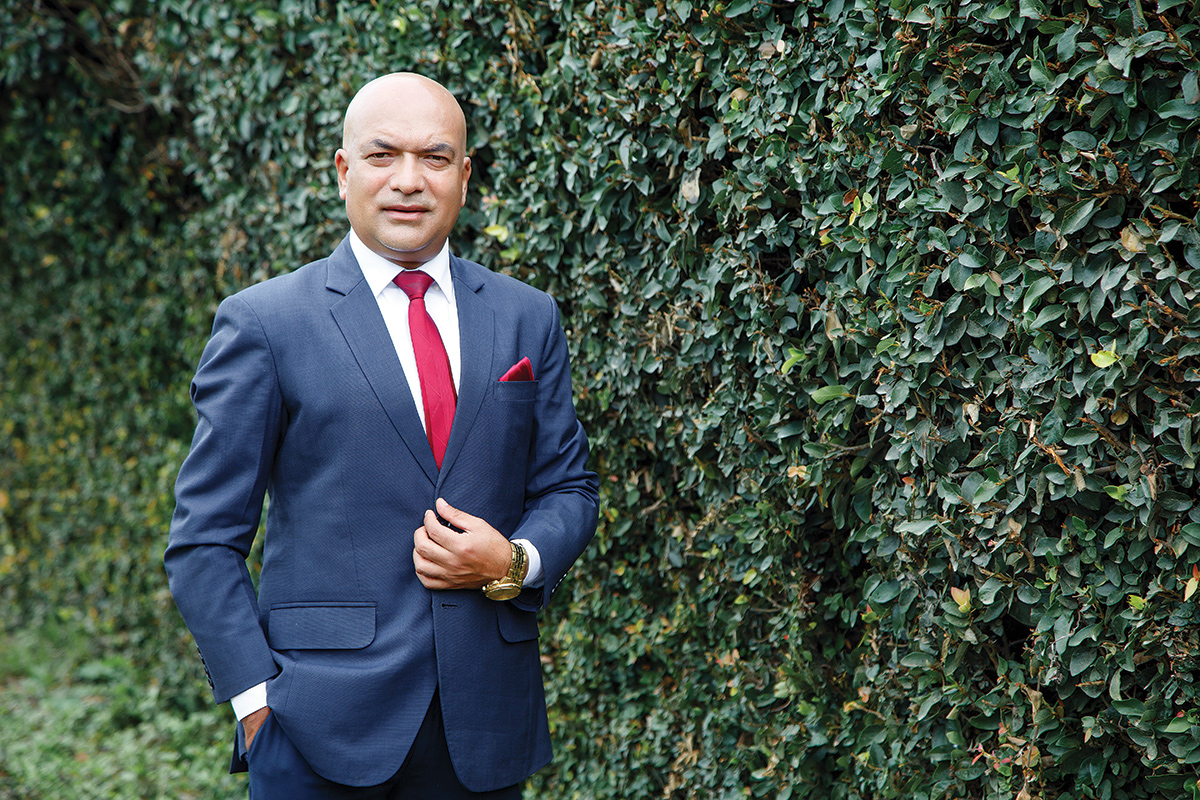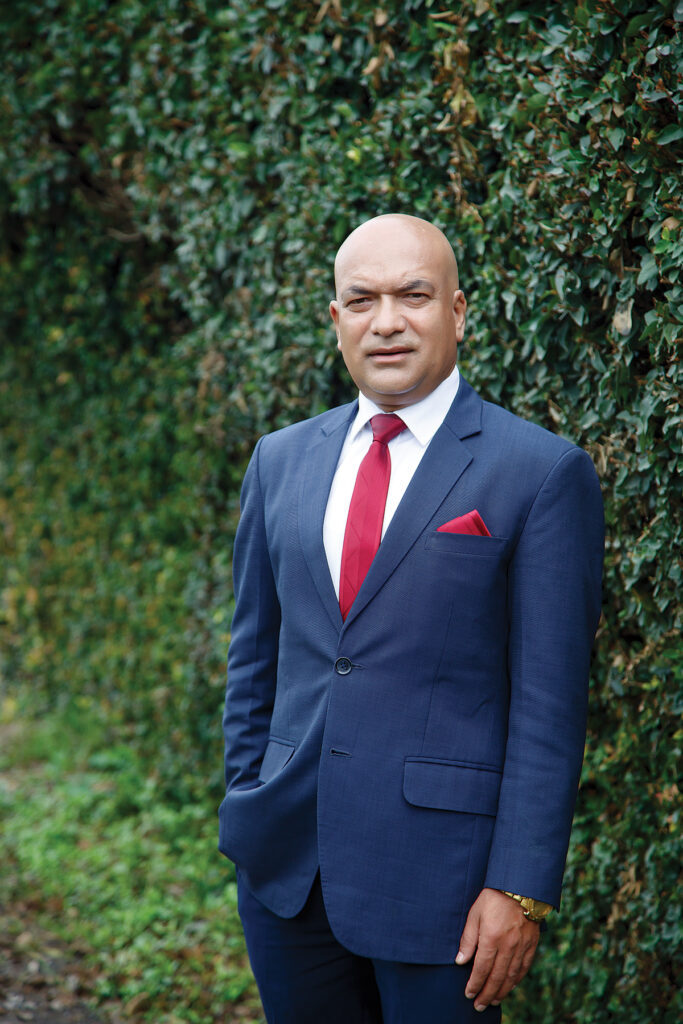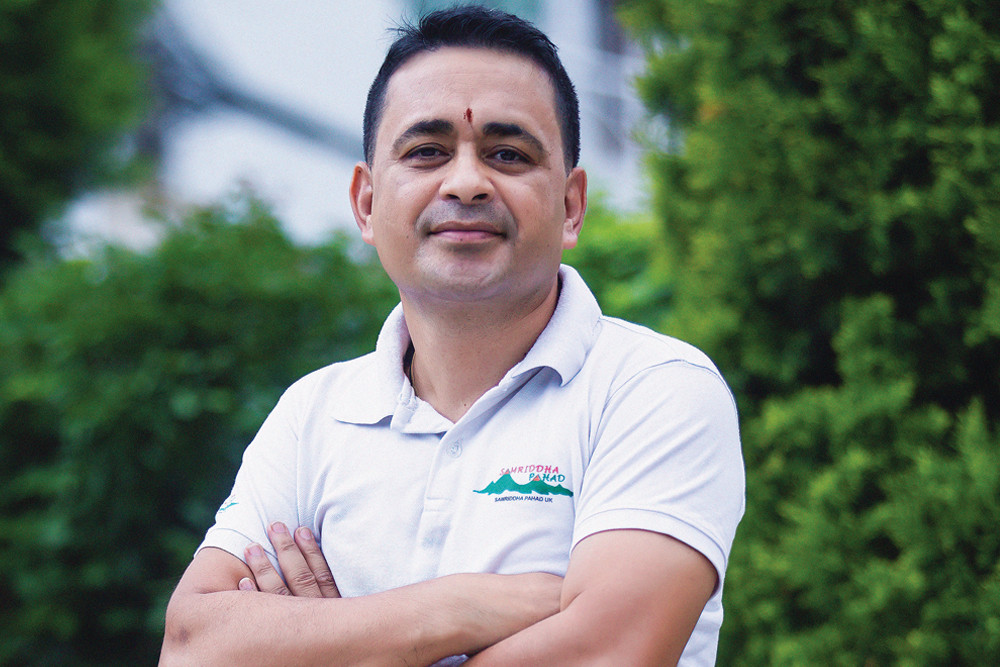
It is never an easy task for any person to be able to hold the attention of a room full of people and have them listen to what you have to say. But this is exactly what Dr Madan Bista does best. A senior certified performance management coach with an acute interest in individual psychology and character traits, Dr Bista says the key to keep trainees engaged is to have a deep sense of involvement. He believes if you put your soul into what you are doing, it reflects outside and others will be able to understand your commitment and pay attention to what you are imparting.
With more than 22 years of experience working as a coach, trainer, facilitator and strategic planner for government, profit, non-profit and corporate sectors, Dr Bista is considered a leading professional trainer in Nepal. Till date, he has facilitated over 50,000 participants working in various levels of different organisations through his training programmes and seminars. From bankers, corporate managers, government officials to students, Dr Bista derives most satisfaction when he can motivate a person to chase their dream. Training people is not only about power point presentations and lectures, he says, it is about the passion and joy that you evoke among the participants.
An avid traveller who has been to over 60 districts in Nepal and nine countries, Dr Bista loves meeting people, sharing experiences and flowing in the now.
In this edition of Business 360, he shares his views on what it takes to be a leader and the other aspects leadership entails.

What’s your definition of a leader?
A leader is someone who accepts new challenges and is able to show the way to other people and move ahead accordingly. A leader is also a person who sees light even when there is darkness all around. If a person is able to accept any challenge as an opportunity and motivate people around them to aspire to a shared goal, then that person could be defined as a leader. He or she is someone who is able to see solutions within any problem.Is leadership ‘in-born’ or ‘acquired’?
There are those who believe leadership is an in-born trait but there is nothing as such to prove that belief. If it was an in-built quality, then we would have people following in their parents’ footsteps to develop their careers. A doctor’s child does not necessarily have to become a doctor or for that matter any other profession. There are so many world-famous leaders in various sectors, like for example in politics and business about whose parents we have heard nothing much about. So, it is really difficult to define leadership as something someone is born with. One good example would be our very own Binod Chaudhary who is a business leader par excellence but we don’t know much about his childhood. I personally believe leadership is acquired. If it was in-born, then the whole process of new leaders emerging would stop. Being born into a family that is doing good might help you initially to socialise with a lot of people but leadership has to be built as you grow. Yes, a fertile ground does give you the scope but it all depends on if you want to grab the opportunity. You learn from your experiences along the way and some people choose to lead while others are happy with what they are doing. Other examples could be Martin Luther King Jr and Mother Teresa who need no introduction. They both worked in totally diverse fields but are known globally for their leadership qualities. And we have no idea whatsoever about their parents or if they were raised in a family of leaders. So, leadership is an acquired trait but one thing any leader must possess and that too in plenty is integrity.Who comes to your mind as an ideal leader?
I have been very influenced by Martin Luther King Jr. When I first heard his speech ‘I have a dream’ I was dumbfounded. And we must remember that it was a speech given at a time when racial discrimination was very prevalent in the US. Being able to motivate people in such trying times and getting rules and policies changed in such a toxic atmosphere was no small feat. The other leaders who come to my mind are BP Koirala and Madan Bhandari for their revolutionary ideas and their persistence in ushering in democracy in Nepal.
Could you share with us any incident that tested your leadership ability?
Providing training and motivating people tests your ability on an everyday basis. I meet people from different walks of life in every training and each training comes with its own set of challenges where I am tested on various aspects. When there are dozens of people from various academic backgrounds and experiences you have to be alert all the time. They have their own intentions and expectations and your ability as a trainer is consistently tested.How important is it to have a good team to work with?
Teamwork is the most essential requisite for any person to be successful. Without a team no person can move ahead, be it in sports or business or any sector. What we usually see is one person rising through the ranks but it is actually because of the team that they are what they have become. You could look at Narendra Modi, the current Prime Minister of India, which is one of the best examples of team work. He is not the party president yet the team decided to project him as the leader. There are senior leaders working as his subordinates but the party has faced no problem as such. This is how all organisations should function.Sadly, in our country the problem facing our political parties is that everybody wants to hold on to all the top positions. They want to be the head of the party and simultaneously the executive head of the country too. This leads to a lot of internal bickering and at the end of the day everything turns out to be a failure. When a good team is built we know the strengths and weaknesses of each individual and we can plan accordingly. And when a well thought-out plan is drafted and implemented nothing can stop you from being successful. No person can achieve anything without the energy of a good team. Even if you look at a family it is a team. When the members support each other then the family becomes successful.When should leaders hand over the leadership position?
I wouldn’t say there is a fixed time to hand over leadership. Some believe that after attaining a certain age a leader should hand over their position to the younger generation. However, age is just a number. If a person is healthy and still has the drive to lead, then there is no problem no matter how old they may be. A very good example of age not being a contributing factor is of Mahathir Mohamad, who again had to take on the leadership role in Malaysia when he was around 90 years old. When a person loses the passion for what they are doing then I feel it is time to hand over the baton to someone who is capable and willing to take the lead. What we should realise is that leadership is not a designation. It is a destination. As long as a person has the energy to fulfil the goals that the team has set then they can still lead.What do you consider your most significant accomplishment as a leader?
There is no such one achievement that I would like to say is the most significant for me. The fact that organisations which have capable people leading them reach out to me for motivational training programmes is a big accomplishment for me. Whenever I am able to bring about a positive change in any individual I feel that is an achievement. Some achievements may look substantial and others minor but that perspective is not correct. Whenever you set out to do something and are able to accomplish it then that is a significant achievement and it could be anything.How can a leader prepare for the unknown?
A leader is someone who can scan the situation and focus on it or else they will not be able to lead. A leader always scans the situation and is able to visualise the outcome five years or ten years down the line. It is then they prepare a strategic vision. That is why they are leaders. Hence, I would say that a leader is already prepared for the unknown. It is this very trait that makes them leaders. One of the reasons why our country has not been able to progress as expected is because we lack that preparedness. Nepal has all the necessary resources to become a tourism powerhouse but we have never had substantial long-term plans because those concerned have not been able to visualise what the situation will be like in the long term.You have been motivating people from all aspects of life. Where do you get the motivation to carry on?
What motivates me is my integrity. What I have understood in all these years of work is every person has the knowledge; it is just that they need a little nudge to be able to utilise what they have within them. And being able to do so on an everyday basis keeps me motivated to carry on with what I am doing. Read this also :Chaotic fall of Kabul and looming uncertainties
Published Date: September 27, 2021, 12:00 am
Post Comment
E-Magazine
RELATED Leadership


.jpg)


.jpg)